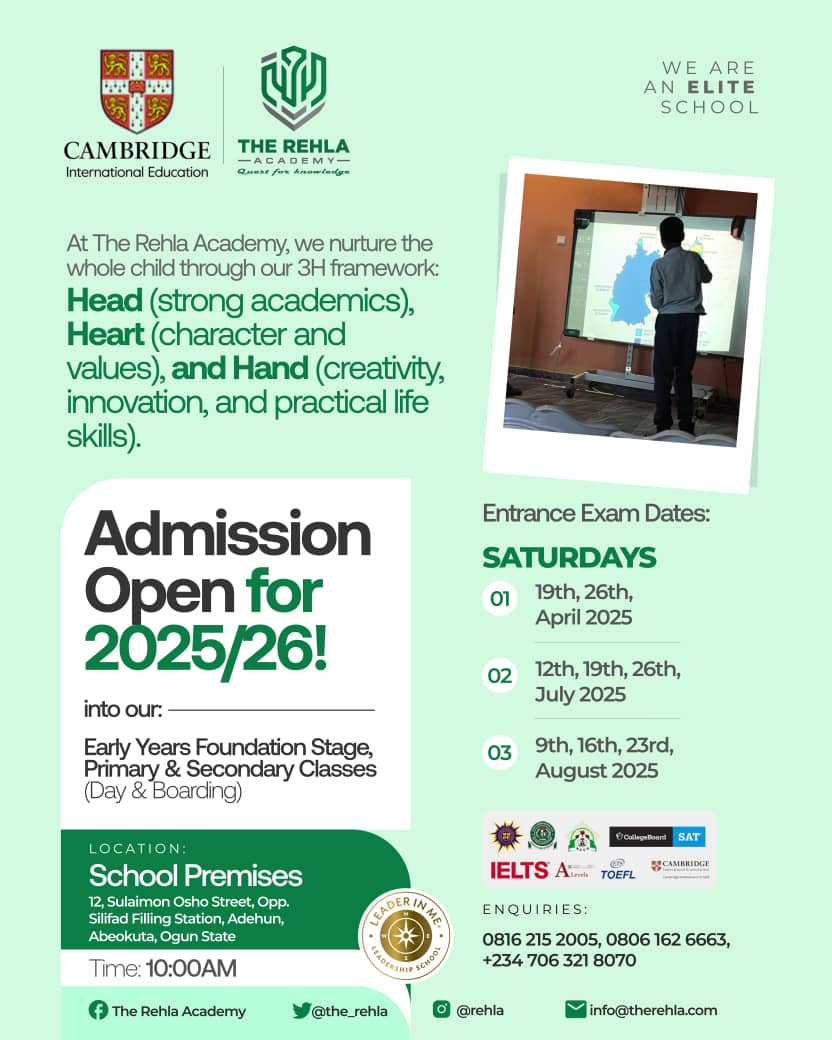Can we meet you?
My name is Micheal Oketunde Okegbola. I am a Registered Surveyor, dedicated researcher, academic, and professional in the field of surveying and geoinformatics with over a decade of experience in geomatics engineering, remote sensing, and GIS. I currently serve as a Graduate Research and Teaching Assistant in the Department of Civil Engineering at Morgan State University, Maryland, United States. I am also pursuing my PhD in Sustainable and Resilient Infrastructure Engineering with a focus on Transportation Systems Engineering.
Please, tell us about your background.
I am originally from Iseyin, Oyo State in the South Western part of Nigeria, where I started my journey in Surveying and Geoinformatics. My background is deeply rooted in the geospatial sciences, combining both academic and practical experiences that have allowed me to contribute to various aspects of this dynamic field. I have been privileged to work in the industry and academic on numerous projects involving land mapping, infrastructure development, cascade, building infrastructure roof-top and environmental monitoring. My academic pursuits have also led to collaborations with experts worldwide, enriching my approach to geospatial challenges.
Tell us about your educational background.
My educational background is grounded in Surveying and Geoinformatics. I earned my National Diploma (ND), Higher National Diploma (HND) and Professional Diploma in Surveying and Geoinformatics from the Federal School of Surveying, Oyo, Nigeria. I then pursued a Bachelor of Science at Lead City University, Postgraduate Diploma and MSc. in Surveying and Geoinformatics at the University of Nigeria, Nsukka. My passion for research led me to Morgan State University, where I am currently undertaking a PhD in Sustainable and Resilient Infrastructure Engineering, focusing on integrating geospatial technologies into sustainable transportation systems.
What informed your decision to pick surveying as a course of study?
My decision to study Surveying was driven by my fascination with maps, landscapes, and the role of spatial data in solving real-world problems. I was intrigued by how precise measurements and data can influence infrastructure development, urban planning, and environmental conservation. Surveying, with its blend of science, technology, and problem-solving in practical, provided the perfect avenue for me to channel my interests into a career that makes a tangible impact on communities. It is worthy of note to mention the role of my mentor Surveyor. J. O. Shiyanbola of Network Survey Services, Iseyin at the grassroots of my professional journey, Thank you sir.
Tell us about your career as a Surveyor and a Geomatic Engineer.
My career as a Surveyor and Geomatic Engineer has been marked by a commitment to excellence and innovation. I have worked extensively in Land, Construction and Hydrographic Surveying, Remote Sensing, and GIS, applying these skills in diverse projects ranging from topographic mapping to infrastructure monitoring. As an academic, I have also mentored students, contributed to curriculum development, and engaged in groundbreaking research that integrates UAVs and big data analytics into geospatial applications. These experiences have equipped me with a unique perspective on how geospatial technologies can address today’s most pressing challenges.
As an academic, what are your contributions to the body of knowledge?
As an academic, I have actively contributed to the body of knowledge through research, teaching, and publications. My work primarily focuses on the application of UAVs, remote sensing, and GIS in sustainable infrastructure and environmental management. I have developed methodologies for shoreline mapping, urban sprawl analysis, and predictive maintenance of transportation infrastructure using big data analytics. These contributions are aimed at enhancing the precision, efficiency, and sustainability of geospatial practices.
Can you tell us if you have papers you have presented in conferences, workshops, and peer-reviewed journals?
Yes, I have presented papers at various international conferences, workshops, and published in peer-reviewed journals. Notably, my paper on shoreline mapping using UAVs was presented at the National Association of Surveying and Geoinformatics Lecturers (NASGL) Conference, highlighting the accuracy and efficiency of UAVs in coastal monitoring NASGL in a sub-Group of Nigerian Institution of Surveyors (NIS). I have also published on topics such as geometric accuracy assessment of UAV data and the impacts of urban sprawl on land use alongside many co-authored publications. These works have been well-received and continue to inform current practices in the geospatial field.
What are your findings?
My research findings underscore the transformative potential of integrating advanced technologies like UAVs, Remote Sensing, GIS and big data analytics in geospatial applications. For instance, UAVs have proven invaluable in delivering high-resolution data for environmental monitoring and infrastructure assessments, significantly reducing the time and costs associated with traditional surveying methods. Additionally, my findings advocate for the use of predictive analytics in transportation systems, enhancing maintenance efficiency and prolonging the lifespan of infrastructure assets including road pavements.
What are your recommendations to stakeholders, and decision-makers in the profession?
I recommend that the Nigerian Institution of Surveyors (NIS), Surveyors Council of Nigeria (SURCON), and other stakeholders actively embrace emerging technologies such as UAVs, GIS, and big data analytics to enhance their operations. Investment in training, re-training and capacity building for Surveyors is crucial to fully harness these tools. Furthermore, there should be increased collaboration between academia for instance (NASGL), industry, and regulatory bodies to ensure that geospatial research directly informs policy and practice, ultimately leading to sustainable infrastructure and environmental management.
What are your future prospects as a Geomatic Engineer, Remote Sensing Specialist, and GIS professional, and your dreams to make Nigeria and the global space better?
My future prospects involve advancing research that integrates cutting-edge geospatial technologies to address global challenges like climate change, urbanization, and infrastructure resilience. I aim to continue developing innovative solutions that make geospatial data more accessible and actionable for decision-makers. My dream is to contribute to the global space by driving sustainable development through intelligent infrastructure systems while also playing a key role in mentoring the next generation of geospatial professionals and researchers better than myself. For Nigeria, I envision a future where geospatial science plays a pivotal role in national development, ensuring smarter cities, sustainable land use, predicting future casualties, suggesting ways to avoid and improved quality of life.
Do you have any advice for the youths who may want to take surveying as their occupation?
My advice to young people interested in Surveying is to embrace the opportunities that this field offers. Surveying and Geoinformatics are at the forefront of technological innovation, impacting various sectors from construction to environmental management. It is a profession that combines technical skills, critical thinking, and creativity. Stay curious, invest in continuous learning, and be open to new technologies like UAVs, GIS, and remote sensing. The future of Surveying is bright, with endless possibilities to shape the world around us. Thank you.
Do you want to share a story with us? Do you want to advertise with us? Do you need publicity for a product, service, or event? Contact us on WhatsApp +2348183319097 Email: platformtimes@gmail.com
We are committed to impactful investigative journalism for human interest and social justice. Your donation will help us tell more stories. Kindly donate any amount HERE






